
Bayard Rustin is not a household American name. There are no national memorials dedicated in his honor and no national holidays preserving his legacy. Even his tiny hometown of West Chester, Pa., was split over a proposal to rename the town high school after him, even though as a student he set state records in track and football that remain to this day. Like many unsung heroes of the storied Civil Rights Movement, such as Ella Baker, Fannie Lou Hammer and Robert Williams , among others, Bayard Rustin's legacy was left in the shadows, only to be discovered decades later by eager historians.
But unlike many of those unsung freedom fighters, Rustin's removal from the public eye was deliberate. He was openly gay in an era when homosexuality was widely considered a perversion, at best. He faced societal intolerance from both inside and outside of the movement. The Civil Rights Movement used slogans of morality and piety to help galvanize millions worldwide, and Rustin's unapologetic attitude often put him at odds with conservative leaders in the movement. In the most heated political moments, Rustin was criticized by white conservatives for his political beliefs and often abandoned by civil rights activists who saw him as a threat to potential gains for the movement.
Rustin is perhaps best known as a man behind the scenes who organized the 1963 March on Washington. Yet he was also one of the main strategists behind the Civil Rights Movement and often tutored Dr. Martin Luther King Jr. in Ghandian protest techniques of civil disobedience. He began as a student activist in the Communist Party in the 1930s and helped lay the groundwork for the Civil Rights Movement of the 1950s and '60s that would capture the world's attention.
As optimism began to fade toward the end of the '60s, Rustin remained steadfast in his belief in nonviolence. He held nationally televised debates with emerging leaders such as Black Panther Party member Stokley Carmichael, who advocated armed self-defense for black folks and eschewed civil disobedience as outdated and ineffective. Throughout his long life and years of organizing, Rustin remained passionate and outspoken.
In 2003 a documentary film based on Rustin's life, Brother Outsider: The Life of Bayard Rustin, was released to a national audience on PBS. Since then, producer and director's Bennett Singer and Nancy Kates have traveled across the country showing the film in schools, churches, community centers and film festivals. WireTap sat down with the director and producer to talk about the film's unique approach to Rustin's life and its impact on audiences:
WT: What inspired the two of you to make this film?
Bennett Singer: I worked for five years at Black Side, the company that produced Eyes on the Prize. I was really interested in the history of the Civil Rights Movement, and became even more interested in Bayard Rustin. I was struck by how visionary he was, and how he had been forgotten as an activist and visionary.
Nancy Kates: I actually saw a book review for his biography that had come out and was inspired by Rustin since he started his activism as a youth while he was in high school and continued working on the same struggles for over 40 years. I think his being a black gay activist was important for both of us.
WT: What were some of the greatest challenges when making this film?
BS: By far, one of the biggest challenges was figuring how, as filmmakers, we could present Rustin's epic life in 84 minutes, while also doing his life and lessons justice. Stylistically, we decided to interview only people who knew Bayard Rustin personally, so finding those people also proved challenging.
We also decided to make the film without using traditional narration. Instead, we took his spoken and written words, as well as FBI surveillance files and used those for voiceovers.
NK: Our decision was not to use a traditional narrator because we didn't want to impose a voice of authority onto viewers. Using Bayard Rustin's words gives more immediacy to his struggles for human rights, more so than other historical films.
BS: How do you make a film about someone who made a conscious effort to stay out of the spotlight? It was difficult to find visual material to tell the story.
WT: The film highlights the tension Rustin encountered with Black Power Era rhetoric. Can you describe how you chose to represent that tension and the work you think such representation does?
NK: We were really fortunate to have two rare footage debates Bayard Rustin had with leaders of the Black Power Movement, Stokley Carmicheal and Malcolm X. But on another level, within academia there's a debate going on where scholars point to the anxiety surrounding black masculinity that took center stage during the Black Power Movement. That may help explain why Rustin seemed so threatening to leaders of both the Civil Rights and Black Power movements. Rustin was also an accomplished singer, and he sang "Scandalize My Name," which was perfect for representing gay panic and homophobia of the time.
BS: Rustin was committed to his nonviolent strategy throughout his life, and it was important to document the significance of his nonviolent position as the Civil Rights Movement's strategy was evolving.
NK: Even though it is a film about Rustin, we try very hard not to choose sides. It's important to represent how each movement had very distinctive yet important methods of action. At one point in the film, Stokley Carmicheal says in a debate that this country is racist top to bottom, left to right. That was such an important statement for us to include in the film, because I don't think it's something that many folks, including Rustin, would disagree with.
Bayard Rustin encountered a generational struggle with changing approaches to activism, but despite it all, he was still relevant and doing very radical work well into the later stages of his life.
WT: What are some lessons today's youth can take away from Bayard Rustin's political and personal life?
BS: It's been amazing to take this film into classrooms where we see people making connections between the Civil Rights, Gay rights and human rights movements. Many of the students we've encountered have made some of the most astute observations. They'll tell us that the film has helped them realize what the media does not show and who makes it into history books. The film has opened up worlds of interest for students because he's an approachable role model: a hero, not a saint.
NK: Folks resonate with people who aren't perfect ... I think for activists especially, this film is important because it shows how persistent he was, how he kept struggling for what he believed and never gave up hope. I personally miss working on this film because it really instilled that sense of hope in me, which is so important for any activist. The times we live in are so trying, so tense, and it was refreshing for me to work on this film for five years and constantly be reminded of that hope by Rustin's legacy.
BS: People seem very grateful that we've made this film. It brings people from different movements together and transcends boundaries. There's this hunger out there, especially among gay people of color, because people want to see visionaries. We screened it this past spring at the United Nations, and so many employees came up to us and mentioned how hostile a work environment the U.N. is for gays folks. Once again, people are thankful for Rustin's vision.
NK: The film has been screened in black churches, and it's been really helpful. On a lot of college campuses, different student groups who normally don't interact very often are excited because they're talking to each other. This film really opens up a lot of dialogue. The screenings we've had are so diverse -- one week I'm in Vermont screening it with an all-white audience, and the next week I'm in Oakland screening it to a theatre filled with queer people of color. Rustin's life has definitely opened up a lot of open discussion.
For more information, visit Brother Outsider: The Life of Bayard Rustin

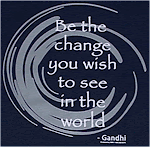




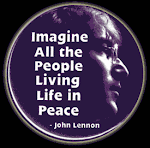


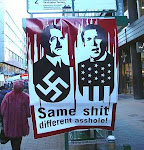




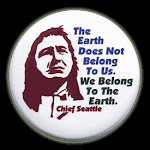




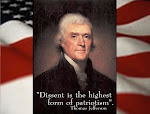
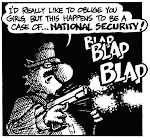






No comments:
Post a Comment